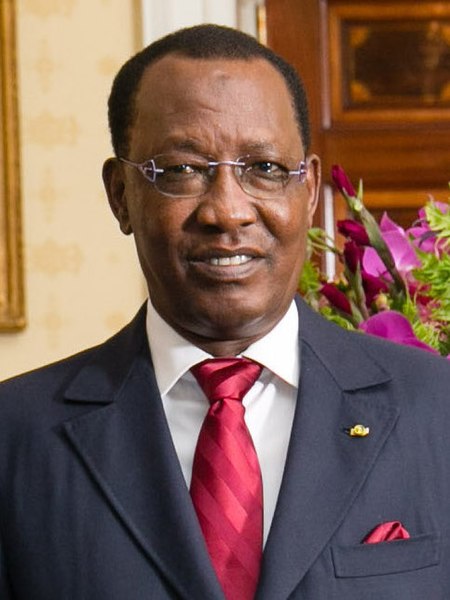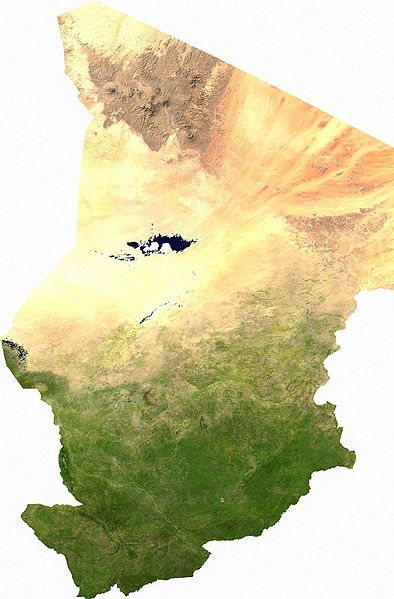2006 Chadian presidential election
Presidential elections were held in Chad on 3 May 2006. A referendum in 2005 had led to changes to the constitution that made it possible for President Idriss Déby to run for a third term; having come to power in December 1990, he had previously won elections in 1996 and 2001. Despite a serious rebellion based in the east of the country, the elections were held on schedule; Déby was re-elected with about 65% of the vote, according to official results. The main opposition parties boycotted the election.
Image: Idriss Déby at the White House in 2014
Image: Prime Minister Albert Pahimi Padacké, in N'Djamena, Chad, 12 December 2016 (cropped)
Chad, officially the Republic of Chad, is an independent state at the crossroads of North and Central Africa. The landlocked country is bordered by Libya to the north, Sudan to the east, the Central African Republic to the south, Cameroon to the southwest, Nigeria to the southwest, and Niger to the west. Chad has a population of 16 million, of which 1.6 million live in the capital and largest city of N'Djamena. With a total area of around 1,284,000 km2, Chad is the fifth-largest country in Africa and the twentieth largest nation by area in the world.
Group of Kanem-Bu warriors. The Kanem–Bornu Empire controlled almost all of what is today Chad.
A Chadian soldier fighting for Free France during World War II. The Free French Forces included 15,000 soldiers from Chad.
Despite internal political opposition, coup attempts, and a civil war, Idriss Déby continuously ruled Chad from 1990 until his death in 2021.
Chad is divided into three distinct zones, the Sudanian Savanna in the south, the Sahara Desert in the north, and the Sahelian belt in the center.





